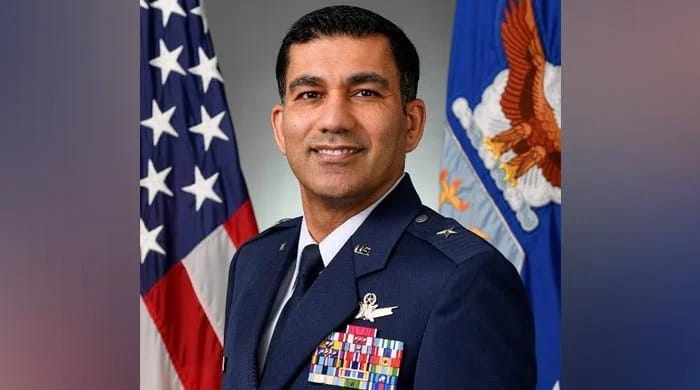First Muslim US Airman to Lead Iron Dome Defense
Shariful M. Khan has made history as the first Muslim US Airman to lead America’s Iron Dome Defense Program. His appointment is more than a military promotion. It is also a milestone for diversity, representation, and inclusion in U.S. defense leadership.
The Iron Dome is one of the most advanced missile defense systems in the world. Entrusting its leadership to Khan is a recognition of his exceptional skills, dedication, and leadership abilities.
What is the Iron Dome?
The Iron Dome is a mobile air defense system originally developed by Israel in partnership with the United States. It is designed to intercept and destroy rockets, missiles, and artillery shells before they reach their targets.
This system has already saved countless lives in conflict zones. For the U.S. military, integrating Iron Dome technology strengthens homeland defense and ensures protection for overseas bases.
By putting a Muslim US Airman in charge, the U.S. Air Force sends a powerful message: expertise, not background, defines leadership.
For more details about Iron Dome technology, visit the U.S. Missile Defense Agency
.
Read Also Here: China Pakistan Partnership Joint Action Plan 2025-2029
A Journey of Determination and Discipline
Shariful Khan’s success story is built on hard work and perseverance. His journey reflects how determination and focus can break barriers. From his early years of training to his rise in military ranks, Khan consistently demonstrated discipline and leadership qualities.
His appointment shows that the U.S. military values skill over stereotypes. Despite the challenges that Muslims often face in the West, Khan rose through the ranks with integrity and resilience.
Breaking Barriers in U.S. Military Leadership
For decades, military leadership positions in the United States were dominated by individuals from similar cultural backgrounds. The rise of a Muslim US Airman to such a critical role is a sign of progress.
It also sends a message to young Muslims and minorities that military service offers pathways to leadership. Khan’s achievement proves that America’s defense institutions are opening doors to talent from diverse communities.
Why Representation Matters
Representation is not just about numbers. It is about shaping perspectives and inspiring future generations. For Muslim Americans, Khan’s achievement is deeply meaningful.
Young Muslims can now look at him and see that military leadership is possible for them too. His story says: “Your religion, culture, or background does not limit your potential.”
Representation builds trust between communities and institutions. By having leaders from diverse communities, the military reflects the very society it protects.
Read Also Here: Karachi Urban Flooding Heavy Rain Alert and Safety Measures
Challenges Along the Way
Khan’s journey was not free of obstacles. Muslims in the U.S. have faced prejudice, especially after 9/11. Despite this, Khan chose to serve. He pushed forward with confidence, proving that loyalty and professionalism matter more than stereotypes.
His story also highlights how institutions evolve. Today, the U.S. military openly embraces diversity as a strength. Leaders like Khan are living examples of that progress.
The Importance of Diversity in Defense
Diversity in the military is more than a social achievement. It is also a strategic advantage. Different perspectives bring fresh solutions to complex problems. A diverse team strengthens unity and enhances decision-making.
When individuals from varied backgrounds serve, they bring cultural awareness and broader global understanding. This is especially important in defense, where decisions often involve international cooperation and global security.
By leading the Iron Dome Program, a Muslim US Airman brings both technical expertise and cultural perspective to one of the most sensitive defense initiatives.
U.S.-Israel Defense Cooperation and the Iron Dome
The Iron Dome system is a product of U.S.-Israel defense cooperation. Since its deployment in 2011, it has intercepted thousands of incoming rockets with a success rate of over 90%.
The U.S. military invested in this technology to protect American bases and allies. By putting Khan in charge, the U.S. shows its trust in his ability to manage not just the system but also international collaboration.
This cooperation also highlights America’s long-term investment in defense partnerships. Leaders like Khan strengthen these ties by overseeing critical projects.
A Source of Pride for Muslim Communities
For Muslim communities in the U.S. and worldwide, Khan’s leadership is a proud moment. His story demonstrates that Muslims can hold top positions in defense and national security.
It also counters stereotypes that often link Muslims to conflict. Instead, it presents Muslims as protectors of peace and contributors to security.
This is why many consider Khan’s appointment not only a military milestone but also a social one.
Inspiring the Next Generation
Soon after the news of his appointment, social media platforms filled with messages of congratulations from Muslims and minority communities. Many young people expressed how inspired they felt by Khan’s story.
His achievement shows that leadership is open to all who are willing to work hard. For students considering careers in defense, engineering, or security, Khan’s journey is a reminder that barriers can be broken.
Lessons from Khan’s Achievement
There are several key lessons to draw from this moment:
- Diversity strengthens institutions – different backgrounds add value to decision-making.
- Representation inspires confidence – seeing someone like you in leadership makes you believe it’s possible.
- Hard work pays off – determination can overcome prejudice and obstacles.
- Leadership is about skills, not stereotypes – trust is built through performance, not labels.
The Human Side of Leadership
Leadership in defense is not just about strategies and technology. It is also about human values — trust, resilience, and responsibility.
Khan’s story shows that leaders must inspire confidence, not only in their teams but also in the people they protect. Throughout his career, he has built a reputation for professionalism and dedication.
That human side of leadership is what makes his achievement even more significant.
Looking Ahead: What This Means for the Future
Khan’s leadership of the Iron Dome Program opens doors for future Muslim leaders in defense. It shows that America is moving toward a more inclusive military culture.
In the future, we may see more Muslims and minorities leading key defense projects. This will not only benefit the U.S. military but also strengthen unity within the nation.
Conclusion: A Milestone for All
Shariful M. Khan, the first Muslim US Airman to lead the Iron Dome Defense Program, has written history. His appointment is a milestone for representation, a victory for diversity, and a message of hope for all who dream of leadership.
His journey shows that excellence has no boundaries. By serving his country and breaking barriers, Khan has become a symbol of inspiration for generations to come.
As America continues to modernize its defense, leaders like Khan prove that diversity and inclusion are not just ideals — they are strengths that shape the future.
Read More Here:















